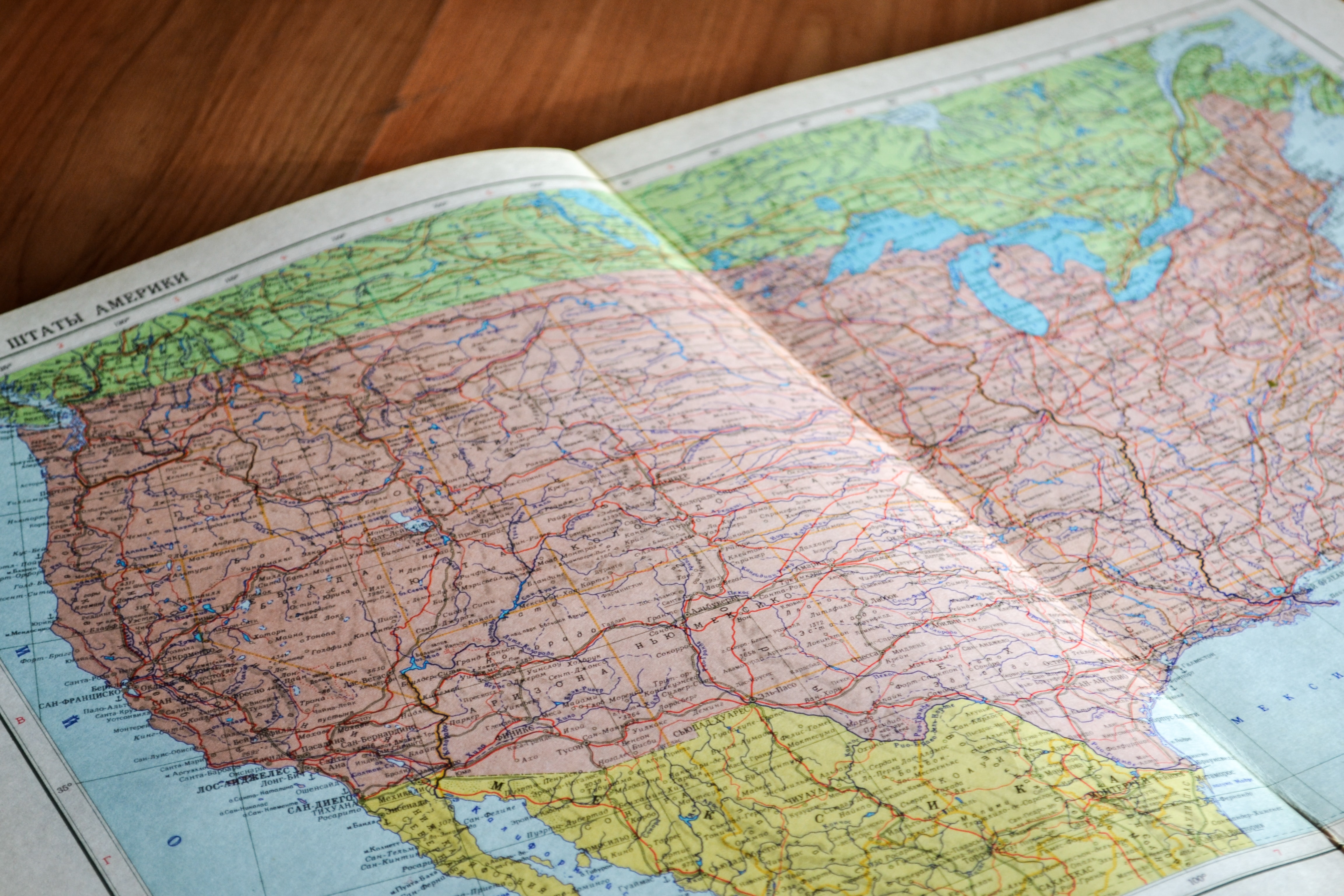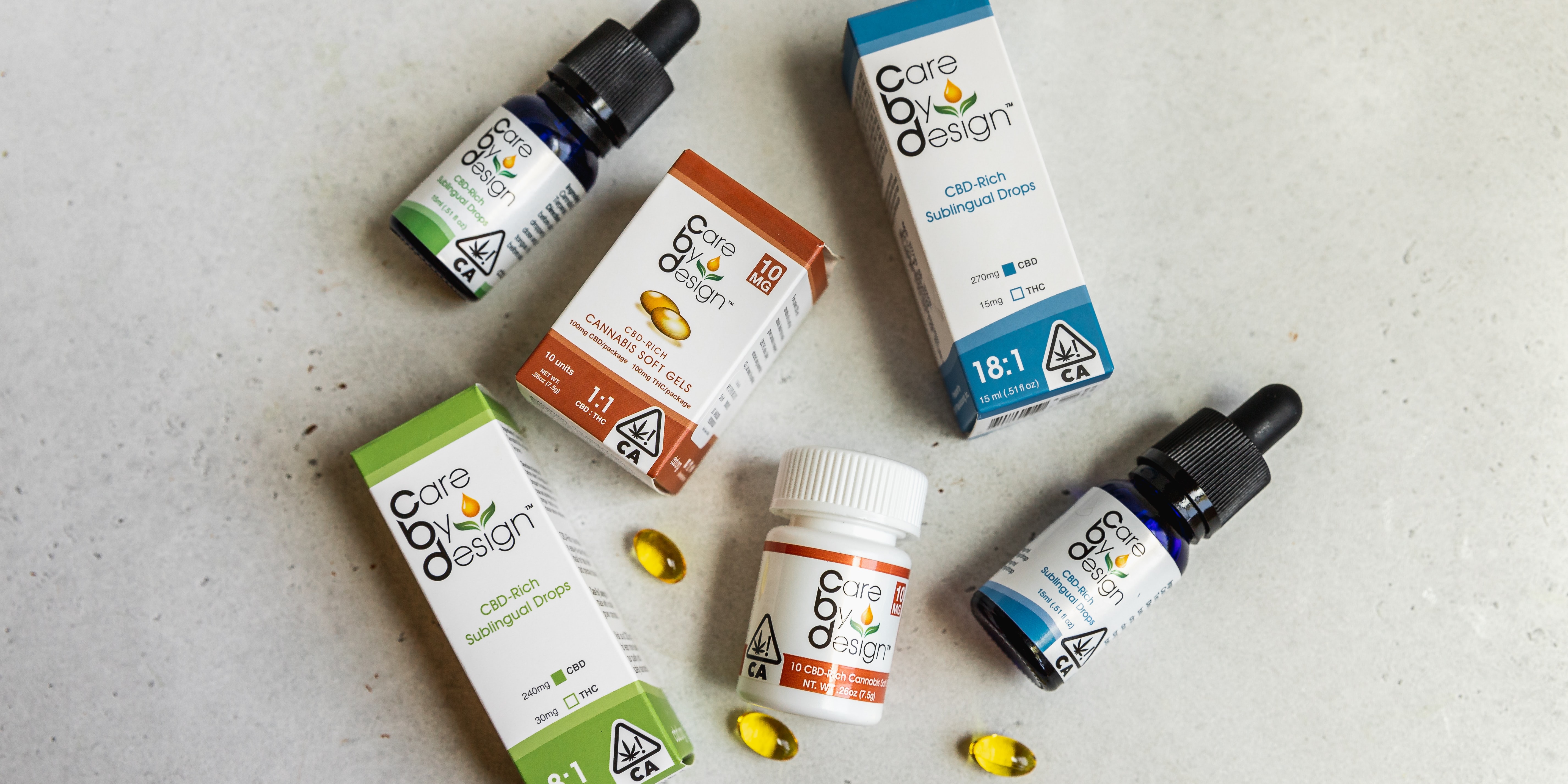
It seems everyone is buying and consuming CBD oil products. Just look at the number of CBD companies popping up. And have you seen all the different CBD products being advertised?
- CBD gummies
- CBD capsules
- CBD infused drinks
- CBD oils and tinctures
- CBD creams, lotions, and topicals
- CBD chocolates
- CBD lollipops
- CBD beauty products
- CBD pet products
- And so much more…
It’s easy to think that CBD is just another trendy “superfood” supplement that will fade in just a few short years. But in the last decade the demand for CBD products has been on the rise. So it’s safe to say that CBD isn’t going anywhere, anytime soon.
After all, multiple studies show that it’s not only a therapeutic medicinal compound, but it’s an incredibly potent anti-inflammatory as well. And we all know that inflammation is perhaps the main contributor of most diseases and other unwanted health problems.
So anytime a natural, less invasive anti-inflammatory molecule becomes available for human consumption, it’s crazy not to jump on it. Right?
But there’s a reason why some people have been on the fence about purchasing and consuming CBD products: Legality!
Maybe that’s what's keeping you from trying it as well.
Luckily, we’re here to help shed some light on this highly confusing topic, and hopefully by the end of this article you’ll have a better understanding on whether or not you can legally purchase CBD.
Let’s begin…
What is the legal status of CBD?
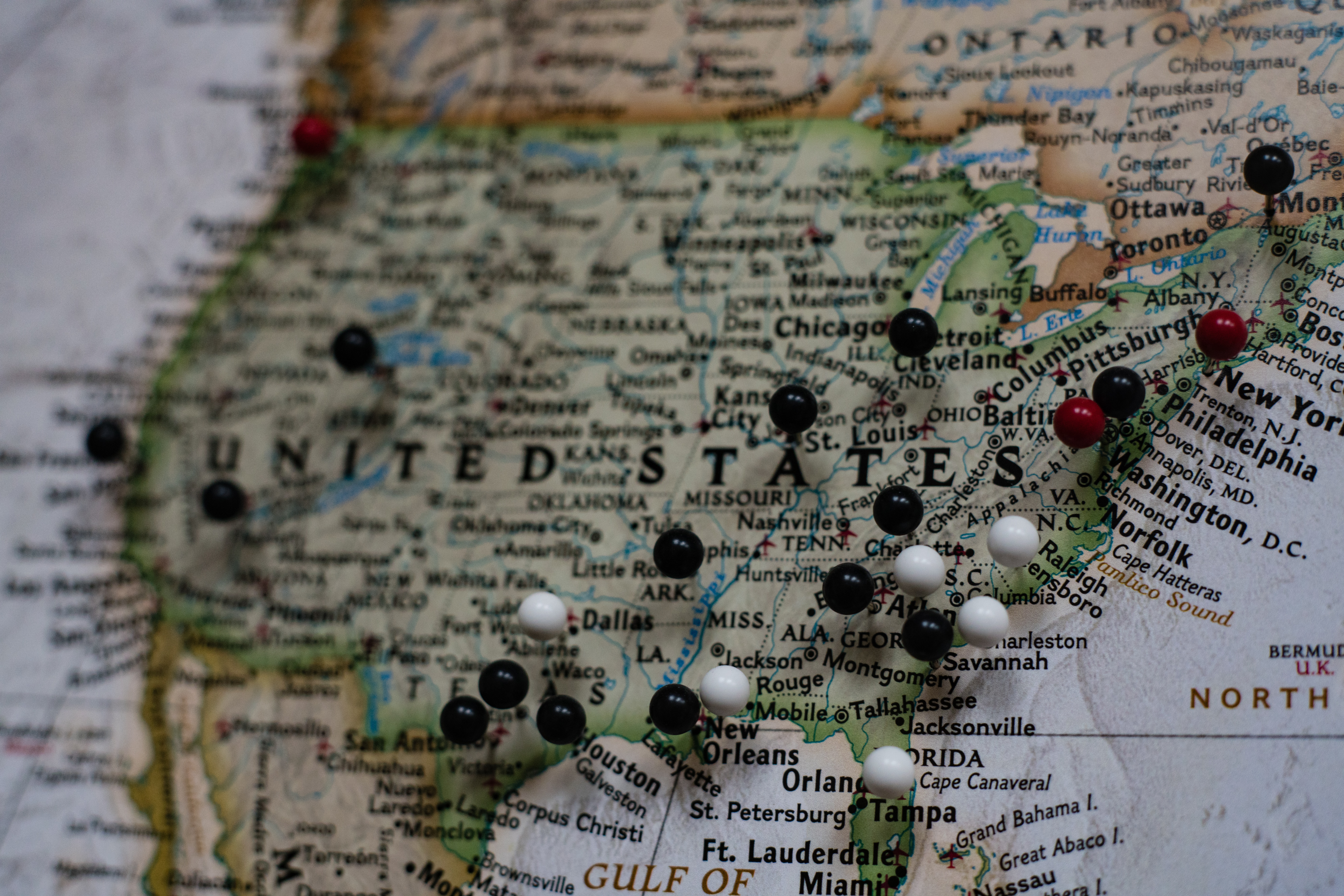
If we had a nickel for every time we heard that question… But there’s a reason people keep asking this. You see, from a legal standpoint, the government has made it incredibly complicated for the cannabis industry.
Now you might be thinking, “No, I’m not asking about cannabis, I’m asking about hemp CBD.”
We know, but before we can really explain CBD’s legal status, it’s important that you know the difference between Hemp and Marijuana.
Here’s the thing: hemp and marijuana belong to the same genus of flowering plants, otherwise known as the family of Cannabaceae. And within this family, there are three species:
- Cannabis Ruderalis
- Cannabis Indica
- Cannabis Sativa
As it turns out, hemp and marijuana are both considered Cannabis sativa. The main difference between the two is that hemp primarily contains only 0.3% or less of THC, the cannabinoid known for getting its users high… and marijuana contains much more than 0.3% THC by dry weight.
On the other hand, CBD, the cannabinoid studied for it’s powerful anti-inflammatory properties and free of any psychoactive effects, appears in much higher volume in hemp than in marijuana.
But since the CBD industry has taken off, cultivators have found a way to breed marijuana strains that have a higher content of CBD. And because of this, more and more marijuana-derived CBD products are beginning to surface.
This is where legality issues come into play.
Stigma of cannabis
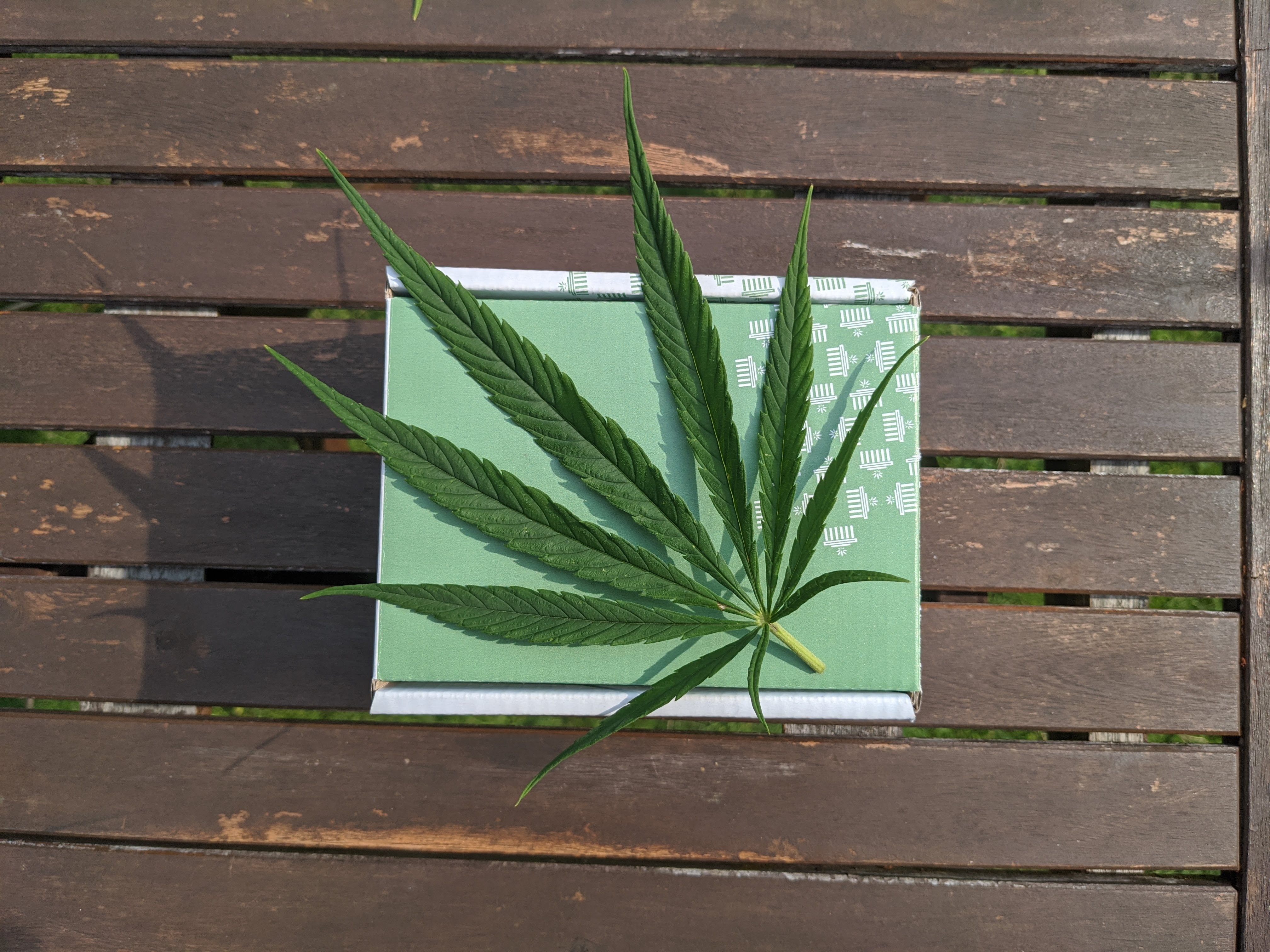
Since the 1930’s, the cannabis plant, which we now know includes both hemp and marijuana, has been misunderstood… and we get it. Marijuana, which we know contains an abundance of THC, isn’t something that many people want to be associated with—regardless if it contains therapeutic value or not.
But here’s the thing: by criminalizing marijuana, hemp—which contains an abundance of CBD—unfortunately was dragged down as well.
And since the 1970s, not only has hemp been stigmatized as a dangerous, addictive substance, it was also outlawed. This is partly because hemp and marijuana look almost identical.
Not to mention CBD and THC have very similar chemical structures:
- 21 carbon atoms
- 30 hydrogen atoms
- 2 oxygen atoms
The difference in their chemical structures is based on how these atoms are arranged. So you can see how these two plants and molecules can be mistaken for each other. Still, it’s our opinion that outlawing this therapeutic family of flowering plants is absurd. Nevertheless, that’s what happened.
Now, let’s fastword a few decades…
Legalizing CBD oil
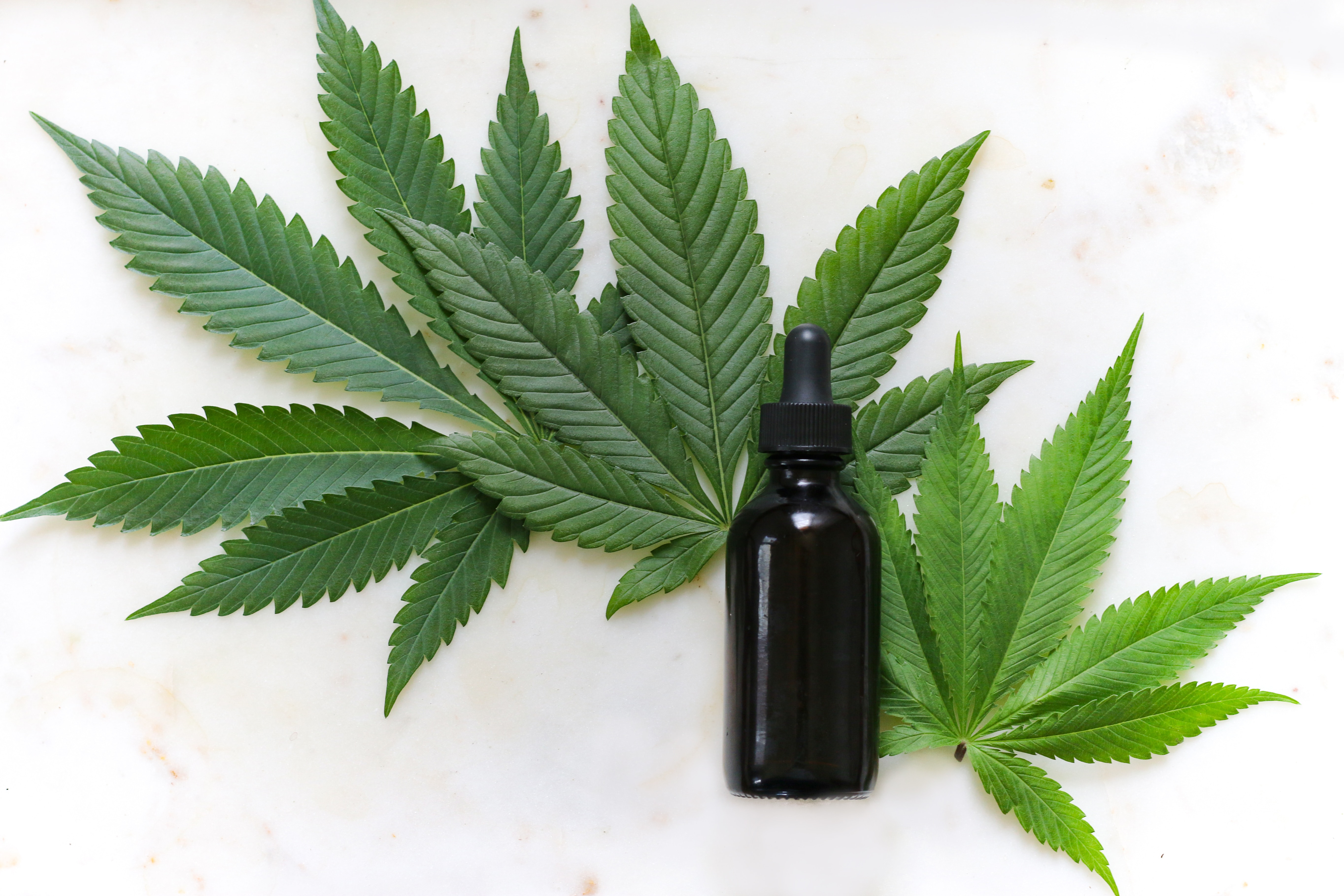
Thankfully, in 2018, the Farm Bill gave the hemp industry an incredible boost by legalizing its provisions of cultivation, transportation, and manufacturing.
In fact, this is how the Farm Bill defines hemp:
“The plant Cannabis sativa L. and any part of that plant, including the seeds thereof and all derivatives, extracts, cannabinoids, isomers, acids, salts, and salts of isomers, whether growing or not, with a delta-9 tetrahydrocannabinol concentration of not more than 0.3 percent on a dry weight basis.”
So as long as hemp contains no more than 0.3% THC, hemp-derived products are federally legal. There’s just one little issue…
In legalizing industrial hemp, the 2018 Farm Bill also opened the door for individual states to choose how they would like to move forward regarding all things hemp.
This means that while CBD is no longer considered a controlled substance and is in fact legal on a federal level, individual states have a say on whether or not they want their state citizens to have the legal right to purchase, sell, or consume hemp-derived CBD.
Seems a bit controlling, right?
We think so too, but are states really restricting hemp-derived products?
State laws and hemp

Unfortunately, there are a few states that have taken advantage of their right to restrict hemp and CBD:
- Idaho
- Nebraska
- South Dakota
As far as these states are considered, the legality of CBD oil products are still unsettled.
But that’s not all…
Even if you live in a state that welcomes hemp-derived CBD products, there are guidelines you have to consider, and of course each state’s laws vary regarding all things cannabis. For example, some states may require your intent for CBD use, while others may only focus on where your CBD is sourced. And the list goes on...
Now, if you live in one of the eleven states that have legalized recreational marijuana, then there are much fewer restrictions regarding hemp-derived products. But don’t let those recreational marijuana states influence you to pack your bags and put your home up for sale just yet…
While your state may have restrictions regarding hemp-derived CBD, it’s important that you know CBD is in fact federally legal across all 50 states.
So how do you know where your state stands with hemp-derived CBD products?
CBD laws by state
Alabama - CBD state law
- Hemp-derived CBD - Legal
- Marijuana-derived CBD - Legal only for medical use
- Marijuana-derived CBD - Illegal for recreational use
Alaska - CBD state law
- Hemp-derived CBD - Legal
- Marijuana-derived CBD - Legal only for medical use
- Marijuana-derived CBD - Legal for recreational use
Arizona - CBD state law
- Hemp-derived CBD - Legal
- Marijuana-derived CBD - Undetermined for medical use
- Marijuana-derived CBD - Illegal for recreational use
Arkansas - CBD state law
- Hemp-derived CBD - Legal
- Marijuana-derived CBD - Legal only for medical use
- Marijuana-derived CBD - Illegal for recreational use
California - CBD state law
- Hemp-derived CBD - Legal
- Marijuana-derived CBD - Legal only for medical use
- Marijuana-derived CBD - Legal for recreational use
Colorado - CBD state law
- Hemp-derived CBD - Legal
- Marijuana-derived CBD - Legal only for medical use
- Marijuana-derived CBD - Legal for recreational use
Connecticut - CBD state law
- Hemp-derived CBD - Legal
- Marijuana-derived CBD - Legal only for medical use
- Marijuana-derived CBD - Illegal for recreational use
Delaware - CBD state law
- Hemp-derived CBD - Legal
- Marijuana-derived CBD - Legal only for medical use
- Marijuana-derived CBD - Illegal for recreational use
Florida - CBD state law
- Hemp-derived CBD - Legal
- Marijuana-derived CBD - Legal only for medical use
- Marijuana-derived CBD - Illegal for recreational use
Georgia - CBD state law
- Hemp-derived CBD - Legal
- Marijuana-derived CBD - Legal only for medical use
- Marijuana-derived CBD - Illegal for recreational use
Hawaii - CBD state law
- Hemp-derived CBD - Legal
- Marijuana-derived CBD - Legal only for medical use
- Marijuana-derived CBD - Illegal for recreational use
Idaho - CBD state law
- Hemp-derived CBD - Illegal
- Marijuana-derived CBD - Illegal only for medical use
- Marijuana-derived CBD - Illegal for recreational use
Illinois - CBD state law
- Hemp-derived CBD - Legal
- Marijuana-derived CBD - Legal only for medical use
- Marijuana-derived CBD - Legal for recreational use
Indiana - CBD state law
- Hemp-derived CBD - Legal
- Marijuana-derived CBD - Illegal only for medical use
- Marijuana-derived CBD - Illegal for recreational use
Iowa - CBD state law
- Hemp-derived CBD - Legal
- Marijuana-derived CBD - Legal only for medical use
- Marijuana-derived CBD - Illegal for recreational use
Kansas - CBD state law
- Hemp-derived CBD - Legal
- Marijuana-derived CBD - Illegal only for medical use
- Marijuana-derived CBD - Illegal for recreational use
Kentucky - CBD state law
- Hemp-derived CBD - Legal
- Marijuana-derived CBD - Illegal only for medical use
- Marijuana-derived CBD - Illegal for recreational use
Louisiana - CBD state law
- Hemp-derived CBD - Legal
- Marijuana-derived CBD - Legal only for medical use
- Marijuana-derived CBD - Illegal for recreational use
Maine - CBD state law
- Hemp-derived CBD - Legal
- Marijuana-derived CBD - Legal only for medical use
- Marijuana-derived CBD - Legal for recreational use
Maryland - CBD state law
- Hemp-derived CBD - Legal
- Marijuana-derived CBD - Legal only for medical use
- Marijuana-derived CBD - Illegal for recreational use
Massachusetts - CBD state law
- Hemp-derived CBD - Legal
- Marijuana-derived CBD - Legal only for medical use
- Marijuana-derived CBD - Legal for recreational use
Michigan - CBD state law
- Hemp-derived CBD - Legal
- Marijuana-derived CBD - Legal only for medical use
- Marijuana-derived CBD - Legal for recreational use
Minnesota - CBD state law
- Hemp-derived CBD - Legal
- Marijuana-derived CBD - Legal only for medical use
- Marijuana-derived CBD - Illegal for recreational use
Mississippi - CBD state law
- Hemp-derived CBD - Legal
- Marijuana-derived CBD - Illegal only for medical use
- Marijuana-derived CBD - Illegal for recreational use
Missouri - CBD state law
- Hemp-derived CBD - Legal
- Marijuana-derived CBD - Legal only for medical use
- Marijuana-derived CBD - Illegal for recreational use
Montana - CBD state law
- Hemp-derived CBD - Legal
- Marijuana-derived CBD - Legal only for medical use
- Marijuana-derived CBD - Illegal for recreational use
Nebraska - CBD state law
- Hemp-derived CBD - Illegal
- Marijuana-derived CBD - Illegal only for medical use
- Marijuana-derived CBD - Illegal for recreational use
Nevada - CBD state law
- Hemp-derived CBD - Legal
- Marijuana-derived CBD - Legal only for medical use
- Marijuana-derived CBD - Legal for recreational use
New Hampshire - CBD state law
- Hemp-derived CBD - Legal
- Marijuana-derived CBD - Legal only for medical use
- Marijuana-derived CBD - Illegal for recreational use
New Jersey - CBD state law
- Hemp-derived CBD - Legal
- Marijuana-derived CBD - Legal only for medical use
- Marijuana-derived CBD - Illegal for recreational use
New Mexico - CBD state law
- Hemp-derived CBD - Legal
- Marijuana-derived CBD - Legal only for medical use
- Marijuana-derived CBD - Illegal for recreational use
New York - CBD state law
- Hemp-derived CBD - Legal
- Marijuana-derived CBD - Legal only for medical use
- Marijuana-derived CBD - Illegal for recreational use
North Carolina - CBD state law
- Hemp-derived CBD - Legal
- Marijuana-derived CBD - Illegal only for medical use
- Marijuana-derived CBD - Illegal for recreational use
North Dakota - CBD state law
- Hemp-derived CBD - Legal
- Marijuana-derived CBD - Legal only for medical use
- Marijuana-derived CBD - Illegal for recreational use
Ohio - CBD state law
- Hemp-derived CBD - Legal
- Marijuana-derived CBD - Legal only for medical use
- Marijuana-derived CBD - Illegal for recreational use
Oklahoma - CBD state law
- Hemp-derived CBD - Legal
- Marijuana-derived CBD - Legal only for medical use
- Marijuana-derived CBD - Illegal for recreational use
Oregon - CBD state law
- Hemp-derived CBD - Legal
- Marijuana-derived CBD - Legal only for medical use
- Marijuana-derived CBD - Legal for recreational use
Pennsylvania - CBD state law
- Hemp-derived CBD - Legal
- Marijuana-derived CBD - Legal only for medical use
- Marijuana-derived CBD - Illegal for recreational use
Rhode Island - CBD state law
- Hemp-derived CBD - Legal
- Marijuana-derived CBD - Legal only for medical use
- Marijuana-derived CBD - Illegal for recreational use
South Carolina - CBD state law
- Hemp-derived CBD - Legal
- Marijuana-derived CBD - Illegal only for medical use
- Marijuana-derived CBD - Illegal for recreational use
South Dakota - CBD state law
- Hemp-derived CBD - Legal
- Marijuana-derived CBD - Illegal only for medical use
- Marijuana-derived CBD - Illegal for recreational use
Tennessee - CBD state law
- Hemp-derived CBD - Legal
- Marijuana-derived CBD - Illegal only for medical use
- Marijuana-derived CBD - Illegal for recreational use
Texas - CBD state law
- Hemp-derived CBD - Legal
- Marijuana-derived CBD - Illegal only for medical use
- Marijuana-derived CBD - Illegal for recreational use
Utah - CBD state law
- Hemp-derived CBD - Legal
- Marijuana-derived CBD - Legal only for medical use
- Marijuana-derived CBD - Illegal for recreational use
Vermont - CBD state law
- Hemp-derived CBD - Legal
- Marijuana-derived CBD - Legal only for medical use
- Marijuana-derived CBD - Legal for recreational use
Virginia - CBD state law
- Hemp-derived CBD - Legal
- Marijuana-derived CBD - Legal only for medical use
- Marijuana-derived CBD - Illegal for recreational use
Washington - CBD state law
- Hemp-derived CBD - Legal
- Marijuana-derived CBD - Legal only for medical use
- Marijuana-derived CBD - Legal for recreational use
Washington, D.C. - CBD state law
- Hemp-derived CBD - Legal
- Marijuana-derived CBD - Legal only for medical use
- Marijuana-derived CBD - Legal for recreational use
West Virginia - CBD state law
- Hemp-derived CBD - Legal
- Marijuana-derived CBD - Legal only for medical use
- Marijuana-derived CBD - Illegal for recreational use
Wisconsin - CBD state law
- Hemp-derived CBD - Legal
- Marijuana-derived CBD - Legal only for medical use
- Marijuana-derived CBD - Illegal for recreational use
Wyoming - CBD state law
- Hemp-derived CBD - Legal
- Marijuana-derived CBD - Legal only for medical use
- Marijuana-derived CBD - Illegal for recreational use
Conclusion
If you happen to live in a state that does in fact restrict the production of hemp-derived CBD, you’re right to feel a little bit annoyed. But the good news is that the hemp and CBD industry has come a long way. So it’s only a matter of time before all states legalize the production of hemp-derived CBD, or marijuana-derived CBD for that matter.
So maybe you can’t buy a CBD oil tincture or a delicious bar of CBD chocolate at a local CBD store, but you can purchase hemp-derived CBD products online. Just be sure you purchase high-quality CBD products from reputable CBD companies. And make sure that company will ship to your state.

